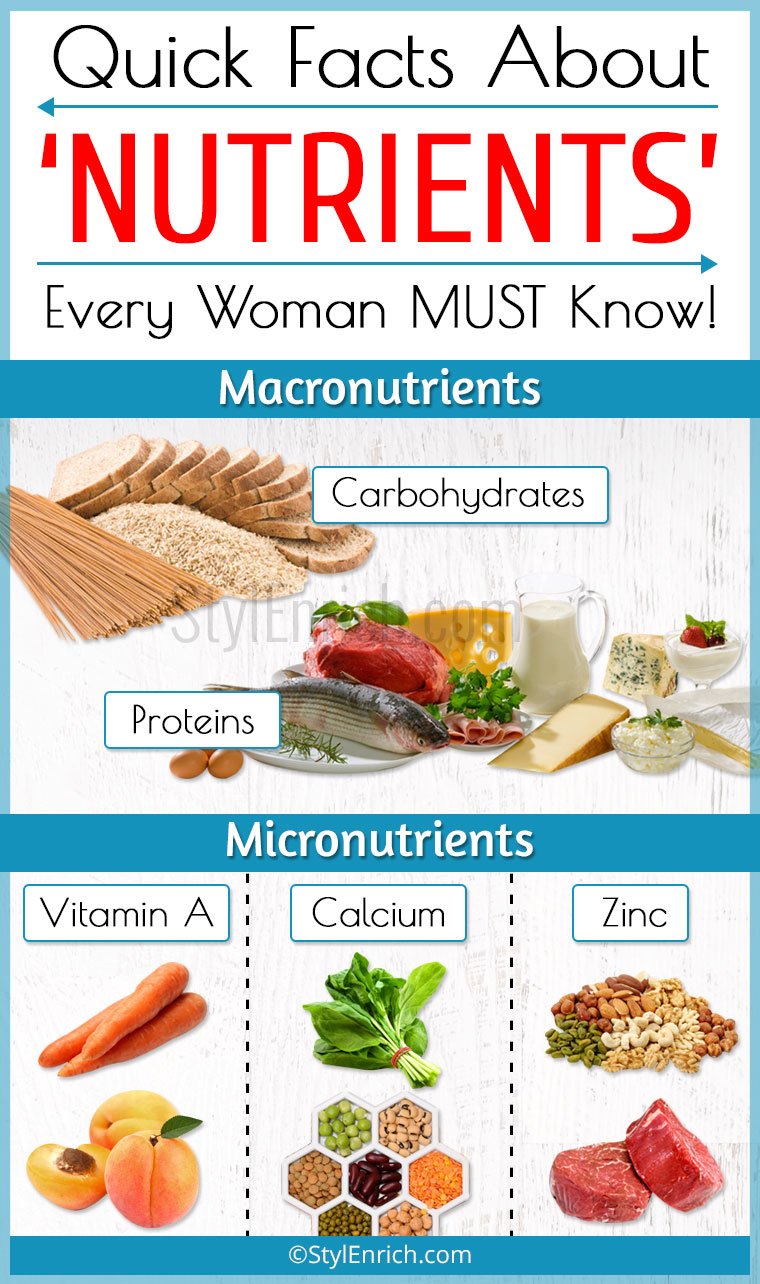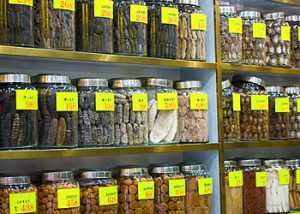We often tell ourselves that we should consume a rich and nutritious diet. Our meals must be fortified with the essential nutrients that are useful for our overall health. But what are nutrients? Do you know that nutrients are of two categories: micronutrients and macronutrients? What are the functions and where can we find nutrients in our food? It is the right time to enlighten ourselves with the importance and sources of nutrients. In this article, we will discuss women’s nutrition in detail.
Women’s nutrition is essential for maintaining overall health of bodies. Due to consumption of nutrients, we are alive and kicking. We derive energy, vigour, strength and development from nutrients. The various processes such as digestive process, respiration process, etc. are also dependent on the consumption of nutrients in sufficient quantities.
Women’s Nutrition
Nutrients are categorized into two main types: Micronutrients and Macronutrients.
As the name suggests, macronutrients are consumed in larger quantities. It promotes the smooth functioning of our bodily systems and keeps us alive.
Macronutrients are carbohydrates, proteins, fats and water.
Micronutrients are consumed in minimal quantities because their need is limited for the overall health of the body. However, these are also vital for the body as it helps in secretion of enzymes and hormones to promote health and growth. If we are deficient in any of these micronutrients, then we may suffer from various diseases such as pneumonia or even weakness or fatigue.
Micronutrients are the various essential Vitamins and minerals necessary for our body.
Let us now study in detail about women’s nutrition, importance and sources for better understanding.
What are Macronutrients?
1. Carbohydrates
- From where do we get energy for our daily activities? The answer is carbohydrates. They are the rich sources of energy for our body cells, muscles and tissues. The body tissues are built and repaired with the help of carbohydrates present in foods. Surprisingly, our brain is largely dependent on carbohydrates. It needs larger quantities of energy to function smoothly and direct other bodily organs. One of the beneficial forms of carbohydrates is fiber. Fiber promotes the smooth functioning of the bowels. If you are consuming a large amount of fiber, then your system is capable of discarding unwanted toxins from the body and cleansing the digestive tract. Interestingly, fiber is vital in weight loss.
- Carbohydrates can be derived from vegetables, whole grains, brown rice, whole-wheat bread, oatmeal, legumes, lentils, beans, and fruits, milk and milk products.
- Though large quantity of carbohydrates are contained in sugar-based products, these are empty calories and lack micronutrients in it.
2. Proteins
- Proteins are the type of macronutrients that boost your immune system. It promotes the development of body cells and antibodies. If you are not consuming the right type of carbohydrates, then your body will derive energy from proteins. As a result, proteins will not be able to serve their main function. Hence, one must consume right quantities of carbohydrates and proteins in daily diet.
- When you are on a fast or when you skip meals, your body lacks proteins as you are consuming large quantities of potatoes, sago and fried items. Your immune system gets affected adversely when you skip meals.
- You can derive proteins from fish, whole grains, lentils, and all kinds of beans, soybean and soy products, nuts and seeds, sunflower seeds, low-fat dairy products.
3. Fats
- As we are talking about the building of cells and tissues, it is also vital to nourish them. This is possible by consumption of fats. We mostly get scared by the word ‘fats’. However, we are talking with respect to healthy fats. They are abundant sources of energy and help in blending vitamins into the body. So, do not completely cut off fats from your meal.
- Unhealthy fats are found in many foods. But your task is to avoid it completely in your diet regime. Instead, you should concentrate on healthy fats that are available in oils such as olive oil, sunflower oil, and soybean oil. This doesn’t mean you can consume substantial quantities of these oils. You need to consume it in minimal quantities.
4. Water
Water does not contain a tint of carbohydrates, proteins or fats. Then, why is termed as one of the nutrients? Why is water considered as elixir to life? This is because water helps in production of sweat, urine and other fluids in our body so that the wastes get excreted. Water intake also helps in weight loss. You just need plain drinking water for the instant source of energy and cheerfulness!
What are Micronutrients?
Vitamins
1. Vitamin A –
- Though all Vitamins are essential for the body, we are giving an insight of the most beneficial ones. Vitamin A is necessary for a strong immune system. It promotes soft and supple skin, clean teeth, and healthy body tissues.
- Vitamin A is abundant in whole milk, spinach, carrots, apricots, and other fruits and vegetables.
2. Vitamin B –
- It consists of the entire Vitamin B group, commonly known as ‘B-Complex.’ A deficiency in any of the B group Vitamins can result in anaemia or other kind of damage. Hence, one must evaluate their diet regime to include Vitamin B group strictly. The primary eight vitamins are as follows-
- Vitamin B12
- Folic Acid
- Vitamin B6
- Biotin
- Thiamine
- Riboflavin
- Niacin
- Pantothenic acid
- Vitamin B group is essential for building a strong immune system, supplying oxygen to body cells and for maintenance of red blood cells.
- Vitamin B is comprised in fish, dairy and poultry products, leafy vegetables and beans. Consume it sufficiently.
3. Vitamin C –
- Vitamin C is a great tonic for gaining healthy skin and teeth. Moreover, it helps in repairing and development of tissues, bones and teeth.
- Citrus fruits such as limes, oranges, lemons, kiwis, contain Vitamin C content. Make a habit of consuming these fruits. A glass of juice also works well for overall health.
Minerals
1. Iron –
- Our body also requires minerals such as iron, zinc, calcium and iodine. Iron performs the task of transportation of oxygen from lungs to other body parts. It is responsible for proper and smooth functioning of muscles, brain and tissues.
- Iron is comprised in spinach, beetroots, lentils, tofu, fish and meat.
2. Iodine –
- The metabolic activity in body cells can be facilitated by sufficient intake of iodine. Iodine also plays a role in secretion of thyroid hormones and its effective functioning.
- One should prefer iodized salt instead of the plain salt.
3. Calcium –
- Calcium intake is essential for strong bones and teeth. A deficiency in calcium leads to serious disorders such as osteoporosis and general weakness.
- Milk and milk products such as buttermilk, yogurt, and curd contain calcium. If you want to skip dairy products for certain reason, then you can opt for soybean, spinach, legumes, whole grains, pulses, cereals in diet.
4. Zinc –
- Our body cells contain zinc. The various functions of zinc are building immune system, maintenance of vision, smell, and other senses and insulin. It also influences thyroid secretion. It adds a protective layer to the body cells against free radicals. It prevents aging of body and skin.
- Zinc is contained in meat, fish, poultry products, seafood, beans, whole grains, nuts and seeds.
Thus, we have attempted to brief you with the essential women’s nutrition, their importance and in which foods you can find them. You need not consume in excess. You should assess your existing diet regime on the basis of these women’s nutrition and modify it to rectify any kind of deficiency. Mother Nature has bestowed several nutritious foods for us, incorporate them in your diet regime and stay healthy!


















